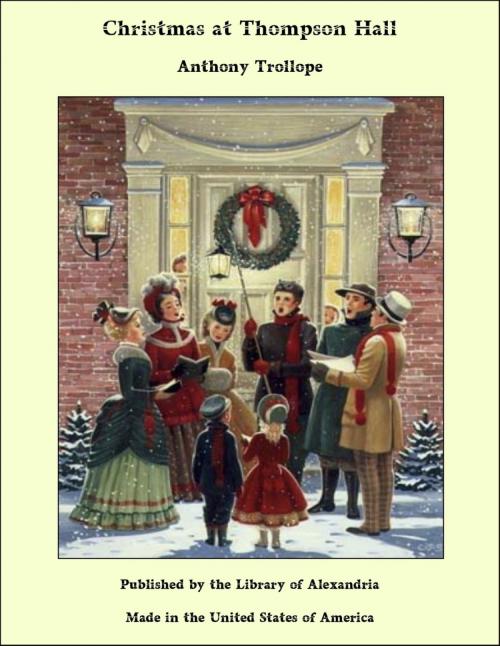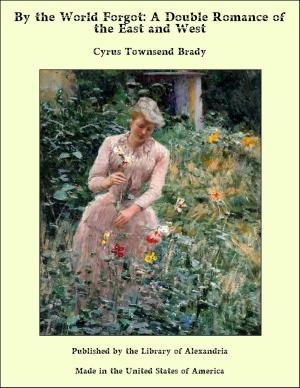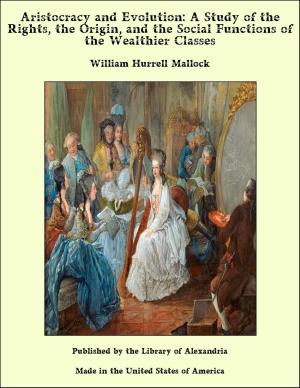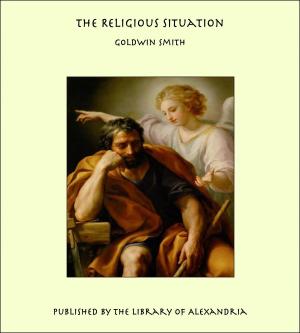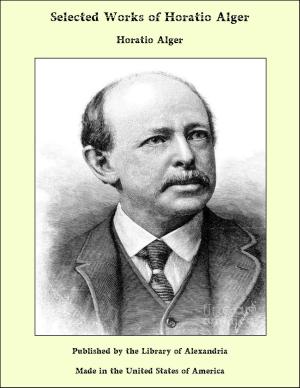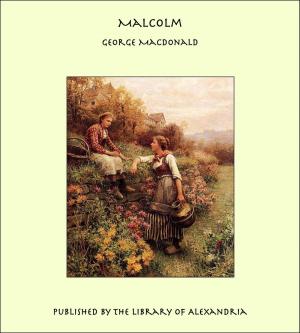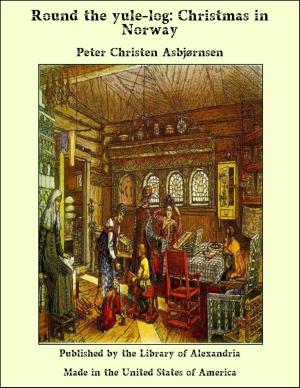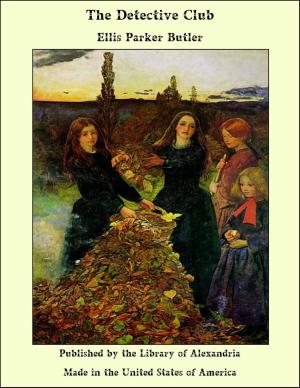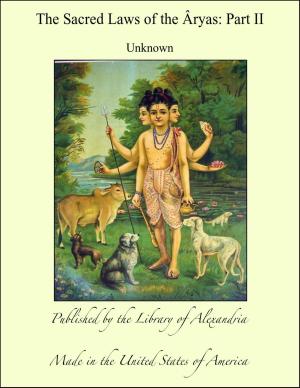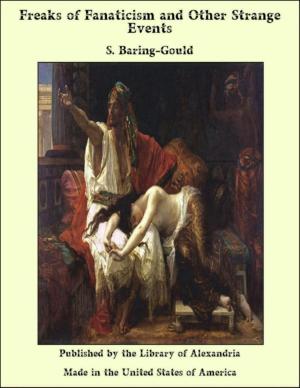Christmas at Thompson Hall
Nonfiction, Religion & Spirituality, New Age, History, Fiction & Literature| Author: | Anthony Trollope | ISBN: | 9781465624307 |
| Publisher: | Library of Alexandria | Publication: | March 8, 2015 |
| Imprint: | Language: | English |
| Author: | Anthony Trollope |
| ISBN: | 9781465624307 |
| Publisher: | Library of Alexandria |
| Publication: | March 8, 2015 |
| Imprint: | |
| Language: | English |
Every one remembers the severity of the Christmas of 187-. I will not designate the year more closely, lest I should enable those who are too curious to investigate the circumstances of this story, and inquire into details which I do not intend to make known. That winter, however, was especially severe, and the cold of the last ten days of December was more felt, I think, in Paris than in any part of England. It may, indeed, be doubted whether there is any town in any country in which thoroughly bad weather is more afflicting than in the French capital. Snow and hail seem to be colder there, and fires certainly are less warm, than in London. And then there is a feeling among visitors to Paris that Paris ought to be gay; that gayety, prettiness, and liveliness are its aims, as money, commerce, and general business are the aims of London, which, with its outside sombre darkness, does often seem to want an excuse for its ugliness. But on this occasion, at this Christmas of 187-, Paris was neither gay, nor pretty, nor lively. You could not walk the streets without being ankle-deep, not in snow, but in snow that had just become slush; and there was falling throughout the day and night of the 23d of December a succession of damp, half-frozen abominations from the sky which made it almost impossible for men and women to go about their business. It was at ten o’clock on that evening that an English lady and gentleman arrived at the Grand Hôtel on the Boulevard des Italiens. As I have reasons for concealing the names of this married couple, I will call them Mr. and Mrs. Brown. Now, I wish it to be understood that in all the general affairs of life this gentleman and this lady lived happily together, with all the amenities which should bind a husband and a wife. Mrs. Brown was one of a wealthy family, and Mr. Brown, when he married her, had been relieved from the necessity of earning his bread. Nevertheless, she had at once yielded to him when he expressed a desire to spend the winters of their life in the South of France; and he, though he was by disposition somewhat idle, and but little prone to the energetic occupations of life, would generally allow himself, at other periods of the year, to be carried hither and thither by her, whose more robust nature delighted in the excitement of travelling. But on this occasion there had been a little difference between them. Early in December an intimation had reached Mrs. Brown at Pau that on the coming Christmas there was to be a great gathering of all the Thompsons in the Thompson family hall at Stratford-le-Bow, and that she, who had been a Thompson, was desired to join the party with her husband. On this occasion her only sister was desirous of introducing to the family generally a most excellent young man to whom she had recently become engaged. The Thompsons—the real name, however, is in fact concealed—were a numerous and a thriving people. There were uncles and cousins and brothers who had all done well in the world, and who were all likely to do better still. One had lately been returned to Parliament for the Essex Flats, and was at the time of which I am writing a conspicuous member of the gallant Conservative majority. It was partly in triumph at this success that the great Christmas gathering of the Thompsons was to be held, and an opinion had been expressed by the legislator himself that, should Mrs. Brown, with her husband, fail to join the family on this happy occasion, she and he would be regarded as being but fainéant Thompsons.
Every one remembers the severity of the Christmas of 187-. I will not designate the year more closely, lest I should enable those who are too curious to investigate the circumstances of this story, and inquire into details which I do not intend to make known. That winter, however, was especially severe, and the cold of the last ten days of December was more felt, I think, in Paris than in any part of England. It may, indeed, be doubted whether there is any town in any country in which thoroughly bad weather is more afflicting than in the French capital. Snow and hail seem to be colder there, and fires certainly are less warm, than in London. And then there is a feeling among visitors to Paris that Paris ought to be gay; that gayety, prettiness, and liveliness are its aims, as money, commerce, and general business are the aims of London, which, with its outside sombre darkness, does often seem to want an excuse for its ugliness. But on this occasion, at this Christmas of 187-, Paris was neither gay, nor pretty, nor lively. You could not walk the streets without being ankle-deep, not in snow, but in snow that had just become slush; and there was falling throughout the day and night of the 23d of December a succession of damp, half-frozen abominations from the sky which made it almost impossible for men and women to go about their business. It was at ten o’clock on that evening that an English lady and gentleman arrived at the Grand Hôtel on the Boulevard des Italiens. As I have reasons for concealing the names of this married couple, I will call them Mr. and Mrs. Brown. Now, I wish it to be understood that in all the general affairs of life this gentleman and this lady lived happily together, with all the amenities which should bind a husband and a wife. Mrs. Brown was one of a wealthy family, and Mr. Brown, when he married her, had been relieved from the necessity of earning his bread. Nevertheless, she had at once yielded to him when he expressed a desire to spend the winters of their life in the South of France; and he, though he was by disposition somewhat idle, and but little prone to the energetic occupations of life, would generally allow himself, at other periods of the year, to be carried hither and thither by her, whose more robust nature delighted in the excitement of travelling. But on this occasion there had been a little difference between them. Early in December an intimation had reached Mrs. Brown at Pau that on the coming Christmas there was to be a great gathering of all the Thompsons in the Thompson family hall at Stratford-le-Bow, and that she, who had been a Thompson, was desired to join the party with her husband. On this occasion her only sister was desirous of introducing to the family generally a most excellent young man to whom she had recently become engaged. The Thompsons—the real name, however, is in fact concealed—were a numerous and a thriving people. There were uncles and cousins and brothers who had all done well in the world, and who were all likely to do better still. One had lately been returned to Parliament for the Essex Flats, and was at the time of which I am writing a conspicuous member of the gallant Conservative majority. It was partly in triumph at this success that the great Christmas gathering of the Thompsons was to be held, and an opinion had been expressed by the legislator himself that, should Mrs. Brown, with her husband, fail to join the family on this happy occasion, she and he would be regarded as being but fainéant Thompsons.
